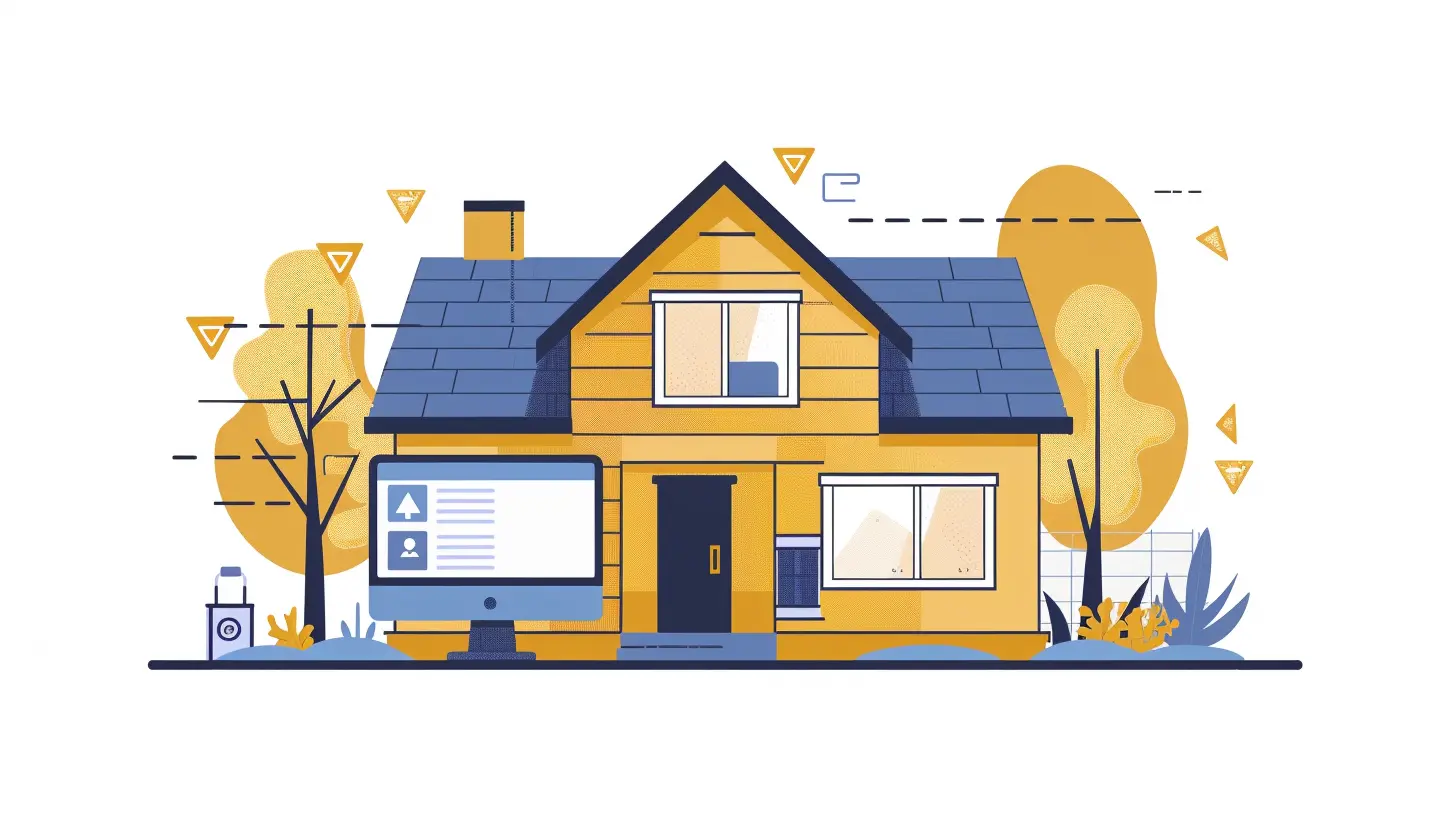11 February 2025
Imagine this: You’ve just landed a new client in your real estate business. There’s excitement, anticipation, and, let’s face it, a little bit of pressure to get everything right. The beginning stages of a client relationship are critical—you’re setting the tone, building trust, and ensuring that things run smoothly. But let’s be real: onboarding can be a bit chaotic. Paperwork scattered everywhere, endless back-and-forth emails, missed details—it can quickly spiral into a nightmare.
That’s where real estate software solutions swoop in like a superhero, saving time, minimizing errors, and delivering a seamless experience. In today’s world, staying competitive in the real estate game requires more than charm and a sharp suit—you need tools that keep your processes efficient, streamlined, and downright impressive.
So, let’s dive into how real estate software can revolutionize your client onboarding process. Spoiler alert: It’s about to make your life a whole lot easier.
Why Is Client Onboarding So Important in Real Estate?
Before we dive into the techy stuff, let’s talk about why client onboarding even matters. Think of it as the first chapter of your relationship with your client—the foundation. If this part is messy or disorganized, it can shake their confidence in you. And trust is everything in real estate, right?Good onboarding sets the tone for the entire journey. It:
- Builds trust: When things are clear and organized, clients feel they’re in good hands.
- Improves efficiency: A smooth process means less time wasted and more deals closed.
- Minimizes misunderstandings: Clear expectations and communication upfront reduce issues later on.
- Enhances client satisfaction: Happy clients? They’re more likely to recommend you to others (hello, referrals!).
But here’s the thing: traditional onboarding methods (think spreadsheets, printed forms, and long email chains) just don’t cut it anymore. That’s where real estate software steps in to save the day.
What Are Real Estate Software Solutions?
If you’re new to the term, real estate software solutions are digital tools designed specifically to help realtors and agencies manage various aspects of their business. From CRM (Customer Relationship Management) systems to transaction management platforms, these tools simplify processes, automate tasks, and keep everything centralized.When it comes to client onboarding, they’re a game-changer. Think of them as your personal assistant—but one that never forgets a detail, works 24/7, and doesn’t require coffee breaks.
Benefits of Using Real Estate Software for Client Onboarding
Okay, so what’s all the fuss about? Let’s talk about how real estate software transforms the onboarding process, step by step.1. Centralizes Information
Ever found yourself digging through emails or sticky notes trying to remember a client’s preferences? Yep, we’ve all been there. Real estate software keeps all client information—contact details, preferences, documents—in one place. It’s like having your entire filing cabinet digitized and searchable.Plus, tools like CRMs (e.g., Salesforce, HubSpot, or Zoho Real Estate) make it super easy to access everything with just a few clicks. Need to check which properties your client liked? Boom, it’s right there.
2. Automates Tedious Tasks
We all have those tasks we dread—sending follow-up emails, setting reminders, or tracking deadlines. Real estate software can automate these things for you. Imagine this: Your software sends a personalized “Welcome to [Your Name] Real Estate” email right after a client signs up. It can even schedule follow-ups and notify you about important dates (like contract deadlines).It’s like having a personal secretary who never slips up. And let’s be honest, who doesn’t want that?
3. Streamlines Documentation
Raise your hand if you LOATHE paperwork. The good news? Real estate software solutions can handle most of it for you. From digital signatures to document storage, platforms like DocuSign or Dotloop make it ridiculously easy to send, sign, and store files.No more printing, scanning, faxing (does anyone even use fax machines anymore?), or chasing clients to sign on the dotted line. And the best part? Everything is legally compliant and securely stored.
4. Improves Client Communication
Communication is key—but it can also be exhausting. With software, you can centralize all client interactions. CRMs keep a log of calls, emails, and texts, so you never miss a beat. Some tools even let you build client portals where your clients can log in to see updates, documents, or property details. It’s transparency at its finest.Think of it like having a direct line of communication that’s always open, but without the stress of constantly checking your inbox.
5. Enhances Accountability
Real estate software doesn’t just keep your clients on track—it also keeps you accountable. Task management features ensure nothing slips through the cracks. Forgot to schedule a home inspection or send over that final offer? Not anymore. These tools act like your memory bank, giving you gentle nudges when things need your attention.6. Creates a WOW Factor
Let’s face it: First impressions matter. When you onboard clients using sleek software, they’re going to notice. It demonstrates professionalism, efficiency, and that you’re tech-savvy (which, let’s be honest, is a huge plus in today’s digital age). A strong onboarding process can set you apart from competitors who are still stuck in the old-school way of doing things.Your clients will probably be thinking, “Wow, this agent really has it together.”
Types of Real Estate Software for Client Onboarding
Not all real estate software is created equal, so let’s break down a few categories that are particularly useful for onboarding.1. CRM Tools
These are the bread and butter of managing relationships. They help you track client details, manage interactions, and build long-term relationships. Popular options include:- HubSpot CRM
- Salesforce for Real Estate
- Contactually
2. Transaction Management Platforms
These tools streamline the entire transaction process, from signing contracts to closing deals. Look into:- Dotloop
- DocuSign Rooms for Real Estate
- Skyslope
3. Scheduling and Appointment Tools
Ease the headache of back-and-forth scheduling with tools like:- Calendly
- ShowingTime
- Rently
4. Communication Platforms
Centralizing communication ensures nothing gets lost in translation. Real estate-specific platforms include:- Follow Up Boss
- BombBomb (for video emails)
- LionDesk
5. Document Management Systems
Say goodbye to filing cabinets and hello to digital docs:- Dropbox
- Google Drive
- OneDrive
Tips for Implementing Real Estate Software
Okay, so you’re sold on the idea. But how do you actually implement these tools without feeling overwhelmed? Here are a few tips:1. Start Small: Don’t try to overhaul everything at once. Begin with one tool—like a CRM—and master it before adding more.
2. Train Your Team: If you have a team, make sure everyone is on the same page. Most software providers offer training or tutorials.
3. Customize for Your Needs: Take the time to tailor the software to fit your business. Add custom fields, automate specific tasks, and set it up in a way that feels intuitive.
4. Get Feedback: Ask your clients for feedback on the onboarding process. If something’s not working, tweak it.
5. Stay Consistent: Like any system, it only works if you use it. Make software a part of your daily routine.
The Future of Real Estate Onboarding: AI and Beyond
Here’s the exciting part—technology is always evolving. AI (Artificial Intelligence) is starting to play a bigger role in real estate software. Imagine chatbots answering basic client questions, predictive analytics suggesting the perfect time to reach out, or AI-generated property matches based on client preferences. Crazy, right?The bottom line? Real estate software isn’t just a trend—it’s the future.
Final Thoughts
Streamlining client onboarding with real estate software solutions isn’t just about making your life easier (though that’s a nice perk). It’s about creating a smoother, more professional experience for your clients. Happy clients mean better relationships, more referrals, and ultimately, more success for your business.So, what are you waiting for? Say goodbye to the chaos of manual onboarding and hello to the magic of automation. Trust me, once you start using these tools, you’ll wonder how you ever managed without them.











Avianna McLemore
Effective onboarding is crucial; great software truly transforms the real estate client experience.
April 2, 2025 at 8:59 PM